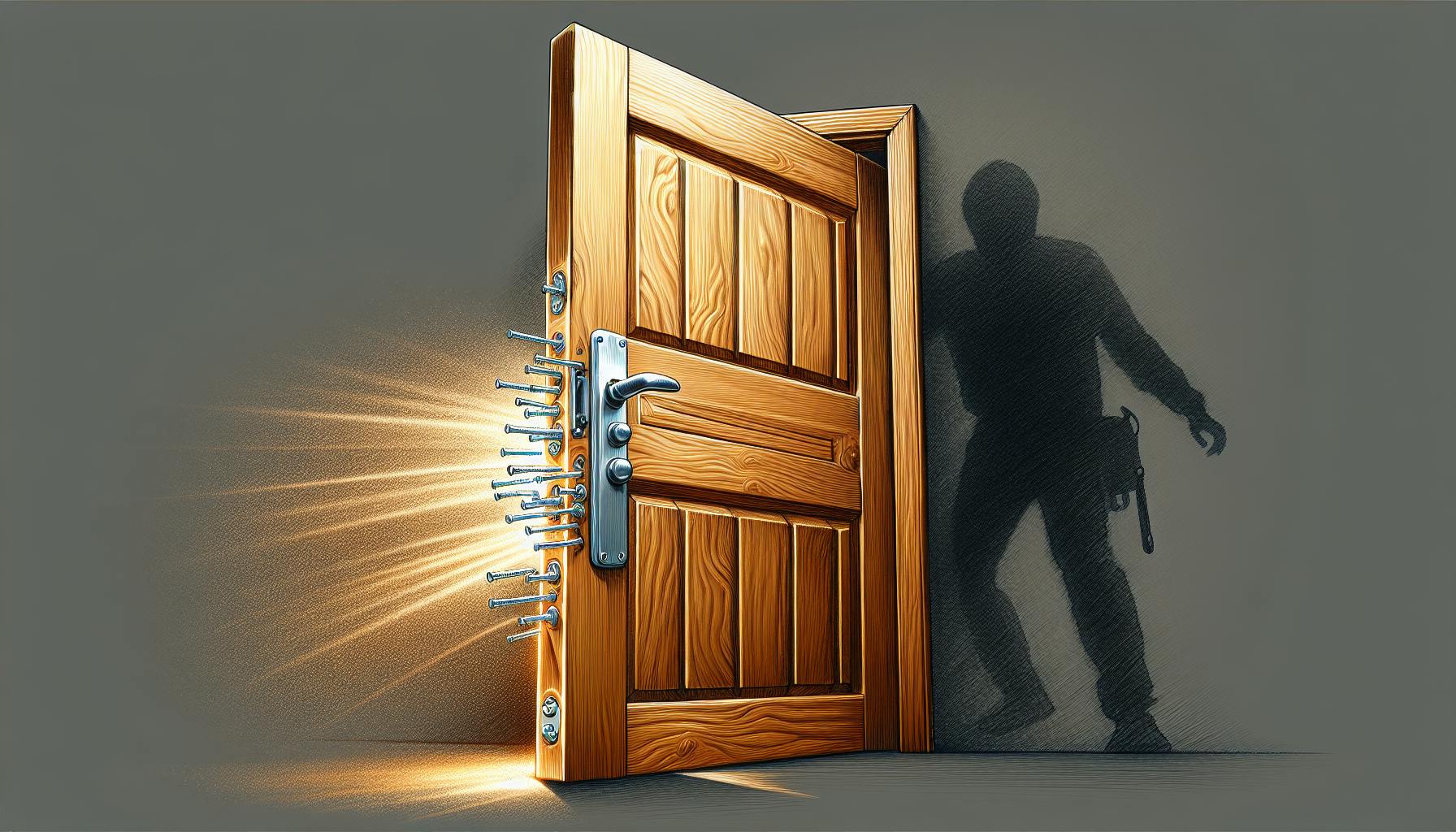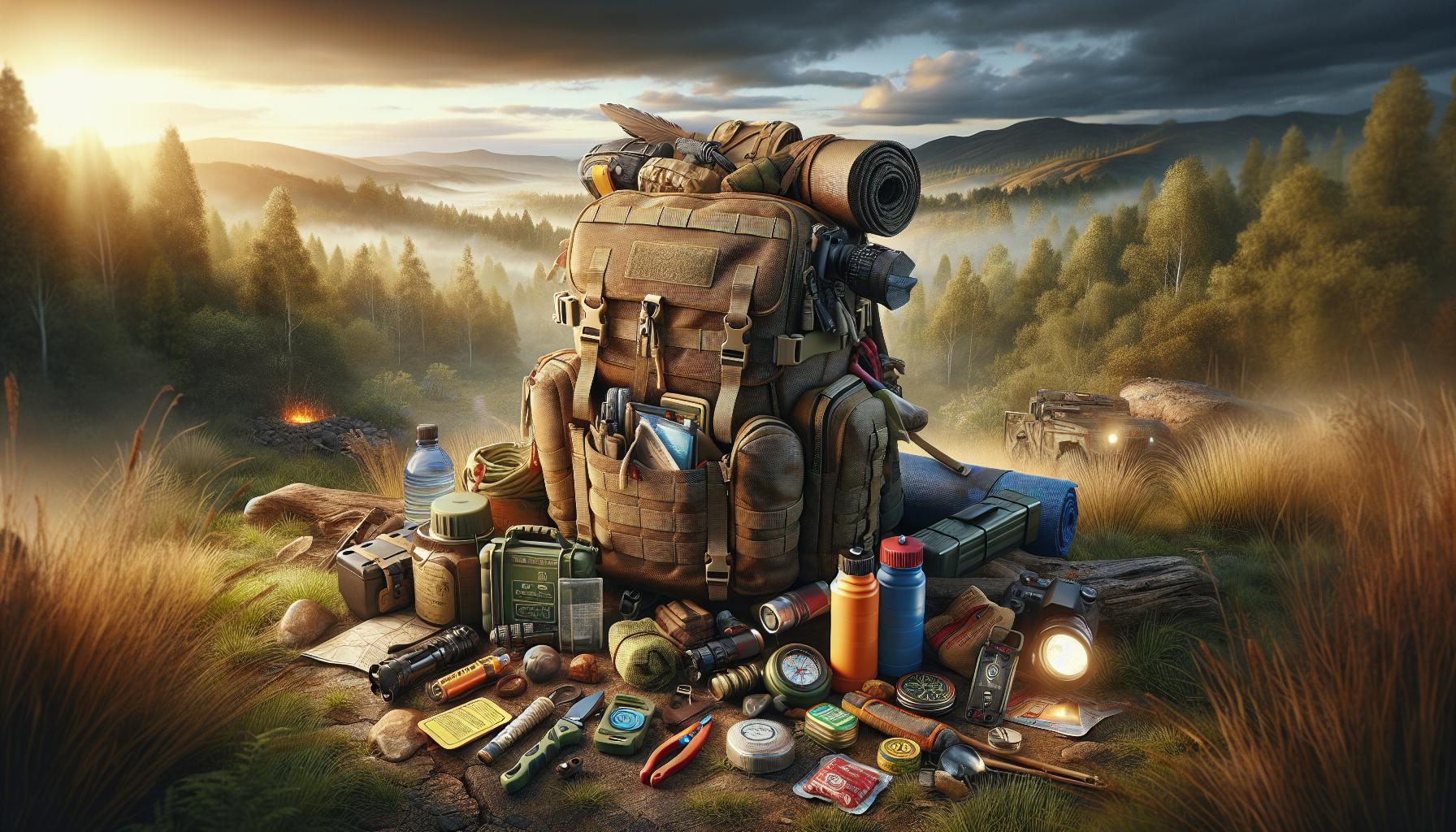Introduction
When disaster strikes, panic and demand often lead to critical shortages of certain essential items. As people rush to stock up on supplies, store shelves empty at lightning speed. Supply chain disruptions exacerbate the problem, making it difficult to restock goods. For preppers, it's crucial to anticipate these high-demand products and stock up on them before an emergency arises.
This article will explore the items that tend to disappear first when catastrophe hits. We'll look at the most sought-after food staples, medical supplies, emergency gear, sanitation products, and other overlooked necessities. You'll learn useful tips on how to prioritize and build your disaster stockpile. We'll also provide guidance on acquiring these crucial preparedness items now, before any shortages occur. Following this advice will help ensure your household has the vital supplies you need to safely weather an extended crisis.
Most Sought-After Food Items
When disaster looms, food supplies quickly dwindle as people rush to stock their pantries. Here are some of the first food items to vanish from store shelves:
-
Canned goods - Non-perishable canned foods with long shelf lives are easy to stockpile. Canned meats, fruits, vegetables, soups, and beans are nutrition staples that disappear right away. Prioritize high protein options like beans, tuna, and jerky.
-
Bottled water - In emergencies, clean drinking water can quickly become scarce. Bottled water gets bought up rapidly. Always good to have a robust supply.
-
Dry goods - Rice, pasta, flour, oats, etc. are pantry basics that allow flexible preparation. These affordable non-perishables go fast.
-
Frozen foods - People grab frozen meat, meals, fruits/veggies expecting potential power outages. Stock freezers empty promptly.
-
Dairy - Milk, cheese, yogurt and other perishable dairy flies off shelves. People anticipate losing refrigeration.
-
Baby formula & food - Worried parents rush to ensure adequate supplies for infants and young children.
-
Pet food - Don't forget food and supplies for pets! This critical need is often overlooked until too late.
-
Snack foods - Granola bars, trail mix, nuts, dried fruit provide portable nutrition.
-
Coffee/tea - Caffeine staples help maintain morale and provide comfort.
Essential Medical Supplies
Medical preparedness is equally important. Several key healthcare products disappear rapidly:
-
Prescriptions - Those dependent on life-saving medications must get extra scripts filled pre-disaster.
-
First aid items - Bandages, gauze, antibacterial ointments, latex gloves all go quickly.
-
Over-the-counter medicines - Common OTC meds like pain relievers, cold/flu med, anti-diarrheals and laxatives are soon gone. Stock extras.
-
Medical devices - CPAP machines, blood glucose monitors, mobility aids like canes should be backed up.
-
Protective equipment - Masks, sanitizers and disinfectants help prevent disease transmission.
-
Specialized supplies - Those with chronic conditions need extra inhalers, epi-pens, compression stockings, etc.
-
Eyeglass/contact prescriptions - Have backup copies of lens prescriptions.
Key Emergency Gear
Reliable emergency equipment is equally vital to have on hand:
-
Batteries - All sizes to power flashlights, radios, alarms, electronics. Rechargeable are useful.
-
Flashlights/lanterns - Crucial with potential power and lighting failures. Have several.
-
Generators - For extended outages, both portable and whole-house generators are ideal.
-
Fuel - Gasoline, diesel, propane to run generators, vehicles, camping stoves.
-
Fire starting supplies - Matches, lighters, tinder keep you warm, help purify water, cook.
-
Ponchos/tarps - Stay dry and construct makeshift shelters, roof repairs.
-
Radios - Emergency radios, walkie-talkies, CB radios, and satellite phones enable communication.
Sanitation and Hygiene Products
Sanitation supplies quickly disappear as well:
-
Toilet paper/paper towels - Always the first to vanish off shelves. Stock deep supplies.
-
Soaps - Hand soap, dish soap, laundry soap. Crucial for sanitation.
-
Toothpaste, deodorant - Dental hygiene and deodorant maintain health/morale.
-
Feminine hygiene products - Women's sanitary needs like tampons/pads must not be overlooked.
-
Diapers and wipes - A priority for families with babies and young children.
-
Garbage bags - Proper waste disposal is vital to prevent disease.
-
Zip ties - Useful for sealing off rooms, securing items.
-
Pool shock - Can be used to sterilize water.
Other Often Overlooked Items
Some additional easily forgotten yet critical supplies include:
-
Cash - ATMs and credit cards may not work. Have small bills on hand.
-
Fuel containers - Extra gas, diesel to keep vehicles/generators operating.
-
Ice - Preserves perishable food if refrigeration is lost.
-
Tools - Axes, chainsaws, crowbars to remove debris, build, survive.
-
Pet supplies - Food, litter, medications for pets. Don't overlook their needs!
-
Entertainment - Cards, books, games provide vital distraction and normalcy.
-
Weather gear - Hats, gloves, coats prepare for storms or outages.
How to Prioritize Your Disaster Stockpile
Build your preparedness supplies strategically:
-
Focus first on water, food, first aid - the fundamental basics for survival.
-
Obtain medications and medical supplies you and your family rely on.
-
Buy versatile items that meet several needs to maximize usefulness.
-
Get critical supplies while still easily available, before shortages hit.
-
Store what you use - then rotate and restock as needed.
-
Have cash reserves and fuel stored as well.
-
Include comfort items - entertainment, treats, etc. for morale.
Use Strategies to Make Supplies Last
When disaster strikes, take steps to conserve:
-
Take inventory and calculate needs before emergency.
-
Ration/distribute food and water wisely each day.
-
Substitute, improvise, and make supplies last longer.
-
Consume perishables first before they spoil.
-
Reuse containers, bottles, etc. whatever you can.
-
Supplement with any found resources.
Have Redundancies for Vital Items
Build in backups for critical supplies:
-
Extra food, water - have emergency caches as a backup.
-
Multiple ways to cook, purify water if primary method fails.
-
Alternate power sources - generators, solar panels, car battery, etc.
-
Additional OTC meds, first aid supplies.
-
Backup radios, flashlights, batteries - have extras ready to go.
Store in Proper Conditions
Proper storage preserves your stockpile:
-
Use cool, dark storage for foods, meds needing climate control.
-
Safeguard important papers in waterproof containers.
-
Have rugged containers to protect delicate gear.
-
Consider climate needs - insulation, shade, ventilation.
-
Keep organized, take periodic inventories.
Security of Supplies
Safeguard your critical stock:
-
Discreetly store supplies to avoid attracting attention.
-
Have secure areas locked, alarmed, well-lit.
-
Don't advertise your level of preparation openly.
-
Safely store/restrict access to any firearms.
-
Defend only as a last resort - avoid confrontation.
Work With Neighbors and Community
Collaborate with those around you:
-
Pool resources, trade supplies with trusted neighbors.
-
Share useful skills - medical, technical, security.
-
Barter goods/services with community members.
-
Communicate, look out for each other.
-
Help vulnerable/unprepared individuals if you can.
Acquiring Crucial Items Before a Disaster
Build your stockpile gradually over time:
-
Stock up a little extra each shopping trip over months/years.
-
Take advantage of sales, coupons and store loyalty programs.
-
Shop wholesale clubs like Costco or Sam's Club for deals.
-
Purchase non-perishables with long expiration dates.
-
When possible, buy durable, reusable products.
-
Have at least 1 gallon of water per person per day.
-
Obtain first aid supplies, OTC meds for your household.
-
Stock up on batteries, fuel, cash, emergency tools.
-
Rotate stock and use what you store to avoid waste.
Trusted Online Suppliers
Reputable online sites to purchase preparedness goods:
-
Amazon, Walmart, Target, Sam's Club
-
Emergency Essentials, Doomsday Supplies, My Patriot Supply
-
Specialized long-term food suppliers like Thrive Life
-
Outdoor retailers like REI and Cabela's
Local Stores to Check Regularly
Brick-and-mortar stores to visit frequently:
-
Grocery stores, warehouse clubs like Costco
-
Pharmacies, convenience stores, dollar stores
-
Hardware stores, home improvement stores
-
Sporting goods stores, military surplus
-
Gas stations, auto parts stores
Other Ways to Get Supplies
Some creative ways to acquire goods:
-
Camping/hiking stores for portable gear
-
Restaurants - purchase bulk ingredients
-
Schools, hospitals, offices - wholesale suppliers
-
Food banks, church pantries, community supplies
-
Farmer's markets and farms - bulk fresh foods
Prepper Events and Conventions
Great places to network and shop:
-
Connect with like-minded preppers
-
See/try latest survival products
-
Take preparedness classes and training
-
Find multi-day food supplies and MREs
-
Talk to experts with proven experience
Store and Protect Important Documents
Safeguard irreplaceable paperwork:
-
Personal identification, passports
-
Insurance policies, property deeds
-
Financial statements, investment info
-
Medical records, prescriptions, immunizations
-
Backup important computer data and files remotely
Conclusion
When catastrophe strikes, certain critical supplies vanish fast. Avoid shortages by stocking up on water, food, first aid, medicine and other vital items now, before an emergency arises. Prioritize your preparedness purchases wisely. Use rationing and conservation techniques to make limited supplies last longer. Acquire key goods through online suppliers, local stores and other creative means. Work together with family and neighbors for security. Following this guidance will help ensure you have the essentials to survive and recover from a disaster. Stay vigilant and prepared.


